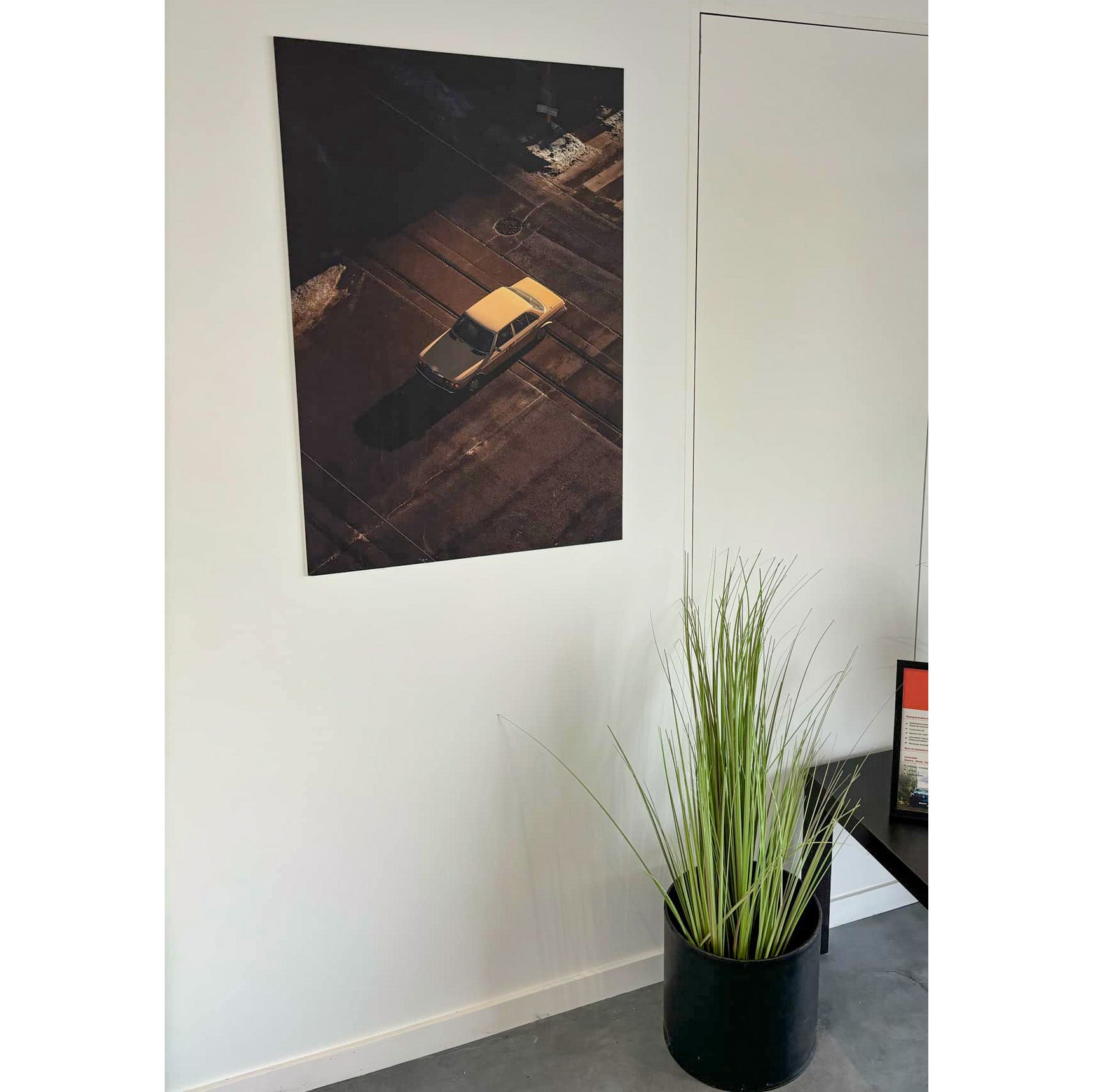Art print | In the farmyard - Julien Dupré


View from behind

Frame (optional)
In the farmyard - Julien Dupré – Captivating introduction
The canvas "In the farmyard" by Julien Dupré transports us to a bucolic universe where rural life unfolds with striking delicacy. This art print, emblematic of the late 19th century, evokes not only the simplicity of everyday scenes but also a profound connection with nature. Through this work, Dupré manages to capture the very essence of farm work, illustrating the gestures of farmers with a precision that borders on realism. The soft light bathing the scene, along with earthy colors, creates a peaceful atmosphere, inviting the viewer to immerse themselves in this moment frozen in time.
Style and uniqueness of the work
Julien Dupré's style is characterized by poignant realism, where every detail is carefully thought out to pay homage to peasant life. In "In the farmyard," the artist uses fluid brushstrokes to bring the characters and natural elements surrounding them to life. The faces of the farmers, imbued with authentic expressiveness, tell a story of labor and devotion to the land. The balanced composition of the work, combined with a palette of warm colors, creates a vivid, almost tactile painting. The artist succeeds in evoking the sounds and smells of the farm, making this work a true ode to rural life, while maintaining a poetic dimension that transcends mere realism.
The artist and his influence
Julien Dupré, born in 1851, is often regarded as one of the masters of rural realism. His artistic journey is marked by a desire to represent peasant life with dignity and respect. Influenced by Impressionist currents, Dupré does not settle for a simple depiction of everyday scenes; he elevates them to the level of art by revealing the intrinsic beauty of these often overlooked moments. His works, including "In the farmyard," are a perfect example, bearing witness to a time when art aimed to depict the social and cultural reality of its era. By highlighting the work of farmers, Dupré contributes to a redefinition of the value of

Matte finish

View from behind

Frame (optional)
In the farmyard - Julien Dupré – Captivating introduction
The canvas "In the farmyard" by Julien Dupré transports us to a bucolic universe where rural life unfolds with striking delicacy. This art print, emblematic of the late 19th century, evokes not only the simplicity of everyday scenes but also a profound connection with nature. Through this work, Dupré manages to capture the very essence of farm work, illustrating the gestures of farmers with a precision that borders on realism. The soft light bathing the scene, along with earthy colors, creates a peaceful atmosphere, inviting the viewer to immerse themselves in this moment frozen in time.
Style and uniqueness of the work
Julien Dupré's style is characterized by poignant realism, where every detail is carefully thought out to pay homage to peasant life. In "In the farmyard," the artist uses fluid brushstrokes to bring the characters and natural elements surrounding them to life. The faces of the farmers, imbued with authentic expressiveness, tell a story of labor and devotion to the land. The balanced composition of the work, combined with a palette of warm colors, creates a vivid, almost tactile painting. The artist succeeds in evoking the sounds and smells of the farm, making this work a true ode to rural life, while maintaining a poetic dimension that transcends mere realism.
The artist and his influence
Julien Dupré, born in 1851, is often regarded as one of the masters of rural realism. His artistic journey is marked by a desire to represent peasant life with dignity and respect. Influenced by Impressionist currents, Dupré does not settle for a simple depiction of everyday scenes; he elevates them to the level of art by revealing the intrinsic beauty of these often overlooked moments. His works, including "In the farmyard," are a perfect example, bearing witness to a time when art aimed to depict the social and cultural reality of its era. By highlighting the work of farmers, Dupré contributes to a redefinition of the value of









